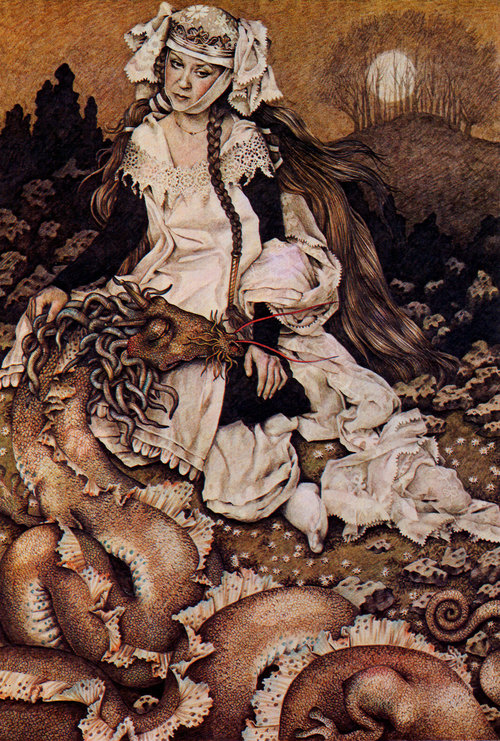Waiting for the Queen of the Seelie Court by Yvonne Gilbert 1979
"The Northern and Middle English word seely (also seily, seelie, sealy, and "seely"), and the Scots form seilie, meaning "happy", "lucky" or "blessed" and unseely meaning "unhappy", "misfortunate" or "unholy" are derived from the Old English sǣl and gesǣlig. The Modern Standard English word silly is also derived from this root and the term "seely" is recorded in numerous works of Middle English literature such as those by Geoffrey Chaucer. Many ballads and tales tell of "Seilie wichts", a Lowland Scots term for fairies. In Wales there were said to be two fairies or elves called Silly Frit and Sili go Dwt whose names represent a borrowing of the adjective silly (in this case meaning happy) as applied to fantastical beings from its usage on the English marches bordering Wales rather than the Anglo-Scottish border. The former name is purely English while the latter is a corruption of English fairy names featuring "tot" (such as Tom Tit Tot) as an element."
-taken from Wikipedia
 |
| "Waiting for the Queen of the Seelie Court to change her love back into a man". Abbey Lubbers, Banshees and Boggarts by Katharine Briggs & Yvonne Gilbert 1979. |
Source:
https://www.goodreads.com/book/show/428053.Abbey_Lubbers_Banshees_Boggarts
http://www.anneyvonnegilbert.com/
Quote:


Comments
Post a Comment